Also: OH. MY. GOD, people. If I get one more email about how recaps are too slow, I’m going to cut a bitch. Friendly warning!
SONG OF THE DAY
Rain – “널 붙잡을 노래” (Song to hold onto you) [ Download ]
EPISODE 5 RECAP
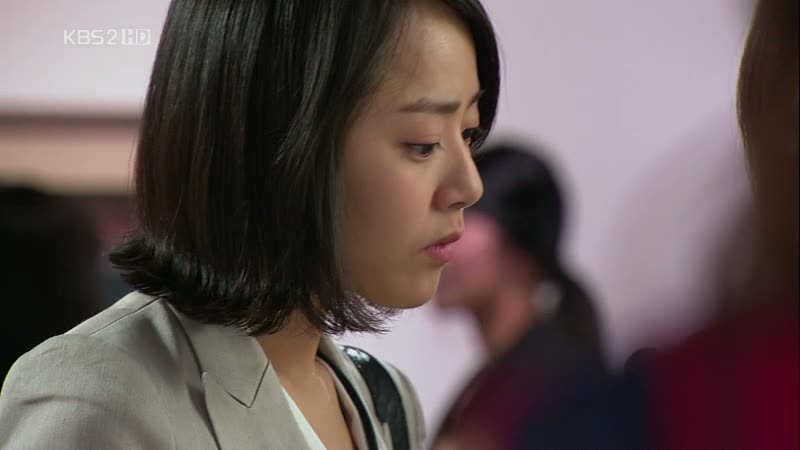
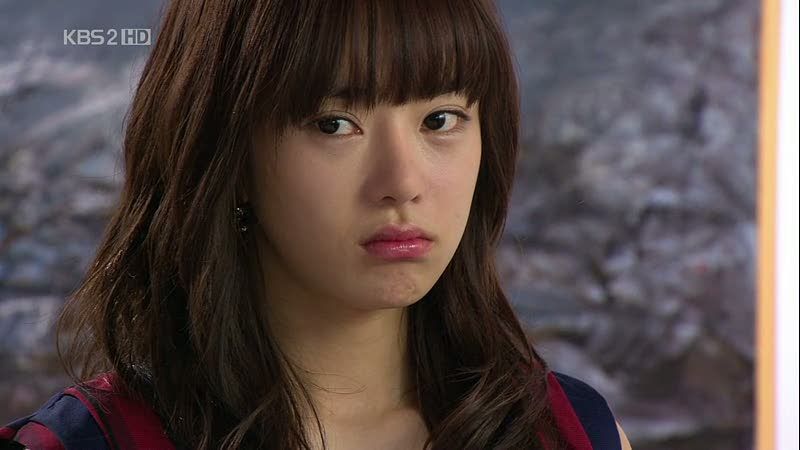
We backtrack a little from Episode 4′s ending to see from Hyo-sun’s perspective how she came to be in the art gallery. She sees Eun-jo walking up the stairs to the exhibit, so she hurries inside and pretends that she has been here all along.
After announcing that she and Ki-hoon are dating (and despite some confusion, yes the meaning is very clear about them dating romantically), Hyo-sun looks closely at Eun-jo for a reaction. Eun-jo is hit hard by this news, but won’t give Hyo-sun the satisfaction of rattling her and keeps her face stoic.
Hyo-sun asks whether Eun-jo thinks she’s lying, but Eun-jo turns to ask the curator a question, ignoring Hyo-sun, who looks at her in petulance. This short scene goes a long way in demonstrating the dynamics between these adult sisters — there is no love lost, and both know how to push each other’s buttons.
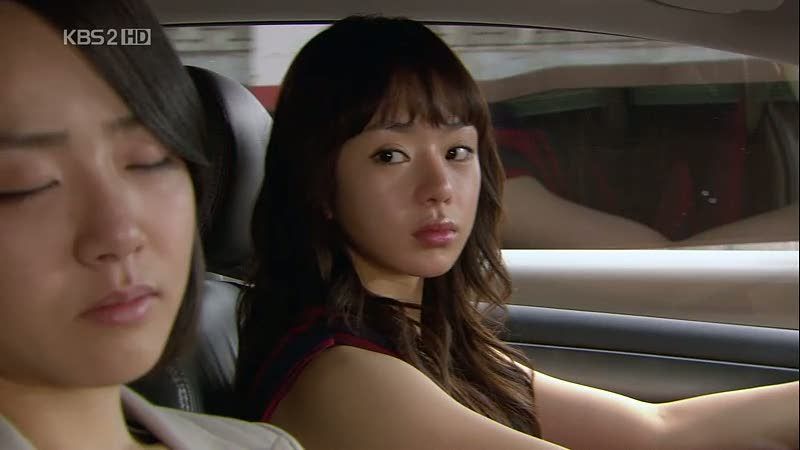
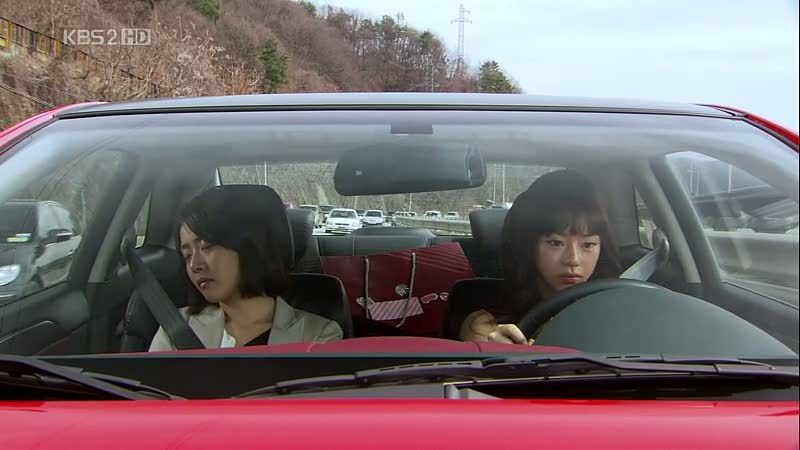
In the car, Hyo-sun presses the topic again, saying (rubbing in) that Eun-jo must not be in contact with Ki-hoon if she doesn’t know they’re dating. Now the narration is in Hyo-sun’s voice, who thinks in dissatisfaction, “She should be dying to ask me, but this hateful sister just pretends to sleep. If she just asked, I would answer.”
But that’s exactly the point — Eun-jo will not ask, because she will not give Hyo-sun the upper hand, especially when it’s so clear that Hyo-sun is goading her. Finally, Hyo-sun screeches to a halt, rousing Eun-jo from her fake-sleep. She has something important to tell her before they arrive at home. Dae-sung is furious with Hyo-sun for racking up a mountain of credit card bills, so Hyo-sun asks her sister to talk to him about it. She doesn’t even know how much she spent — “just a whole lot.”
It’s not hard to surmise that Hyo-sun, the spoiled sister who likes spending money on fripperies, has often disappointed their father, who looks favorably upon his hard-working, competent elder stepdaughter.
Eun-jo has no desire to enable Hyo-sun to continue her foolish spending without consequence (Hyo-sun defends her shopping because “There are so many beautiful things in the world”). Hyo-sun asks why her sister is always so righteous about everything, thinking she’s better.
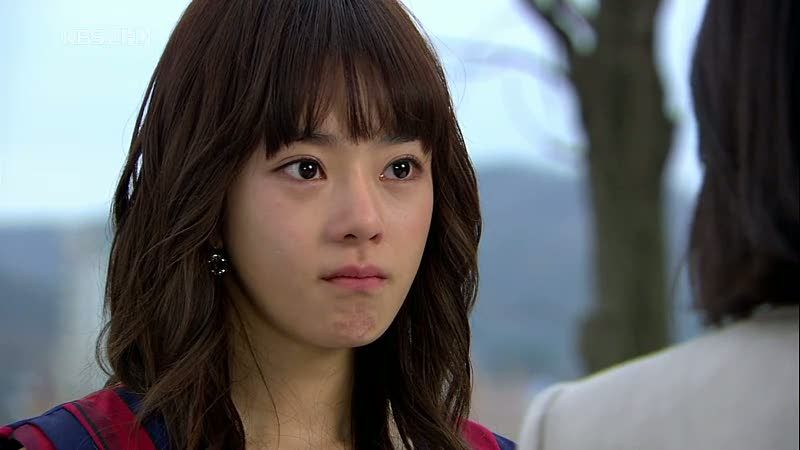
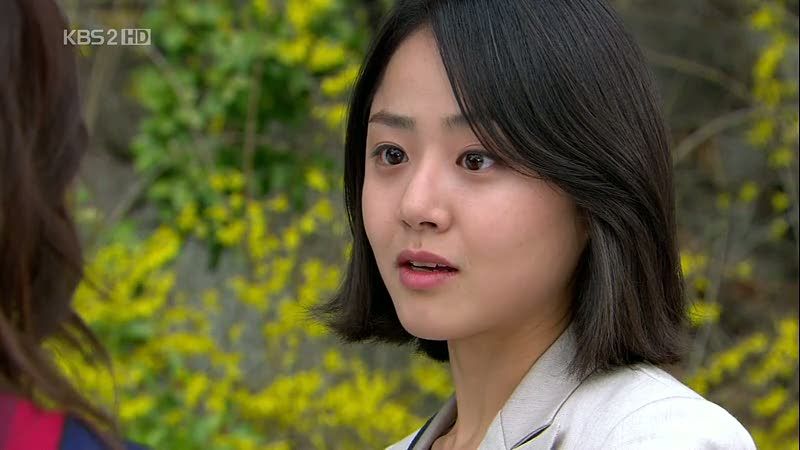
Eun-jo gets out of the car to walk, and Hyo-sun follows her out to continue this argument. Is Eun-jo really going to let Hyo-sun get hurt? (By “hurt” she means punished with a stick, aka held accountable for her irresponsible behavior.) Note that now Hyo-sun talks in language that is just as rude as Eun-jo’s as a teenager.
Eun-jo challenges Hyo-sun: “What’s your dream? How are you planning to live in the future? Do you have any plans?” Hyo-sun defends herself — she goes on ballet auditions all the time! Eun-jo points out that Hyo-sun’s feet are clean and pretty, which indicate how little she actually practices, which explains why Hyo-sun is always failing her auditions.
Eun-jo: “You don’t practice, do you? You don’t even want to do ballet that much, do you? You have no dream, do you? You have no plan or goals — you have no thoughts.”If Hyo-sun admits that she has no dreams, Eun-jo offers to consider her someone to be pitied and will help her. (You push my buttons? I’ll push yours back.) But this is too great a price, and Hyo-sun won’t give her sister the satisfaction, either.
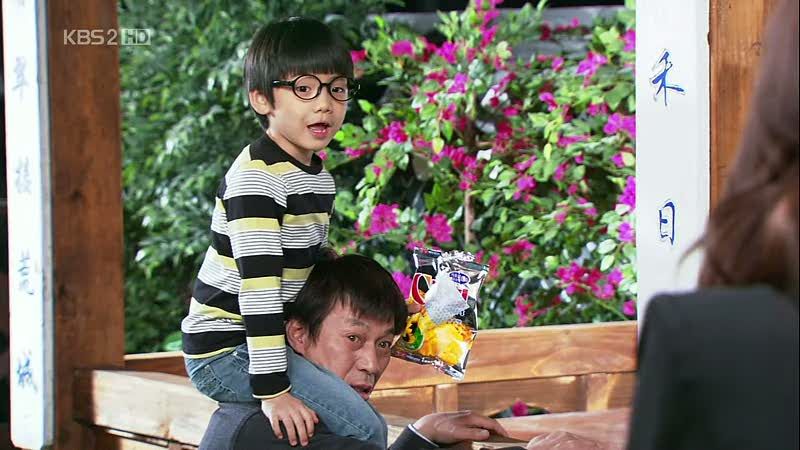

There’s an additional family member now, as Dae-sung and Kang-sook now have a son named Jun-su. We don’t dwell on him very much except to establish a couple points, one here and one later: (1) he is very cute, and (2) he’s got the beginnings of a mean streak.
Dae-sung brings out the trusty punishment stick and whacks Hyo-sun on the back of her legs, and she falls to her knees, yelping and begging for mercy. But he’s not going to let her off so easy this time and orders her back up. However, Kang-sook swoops in to the rescue and urges Hyo-sun to flee (who is more than happy to oblige), then pleads with her husband to calm down. She argues that this is the province of a mother, and promises to talk to Hyo-sun appropriately.
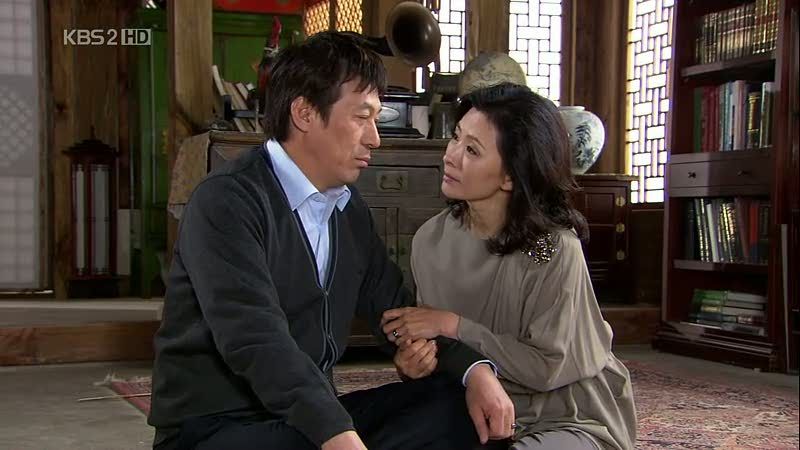
The clever woman sees that he’s close to giving in and just needs a little push, so she asks in a wounded tone, “Do you even think I have the right to be Hyo-sun’s mother?” If he punishes Hyo-sun, it feels like he isn’t acknowledging her as a mother with the right to discipline her daughter.
Lest you think Dae-sung’s a fool to fall for Kang-sook’s manipulations, he IS aware that she is crafty, but he has a soft spot for her and often relents. This time, he asks with affection, “How many tails do you have?” She answers, “I only have nine.” (He’s referring to the gumiho, or the nine-tailed fox, but in addition to the mythical allusion, any mention of a fox also carries with it the connotation of a sly woman who manipulates men.)

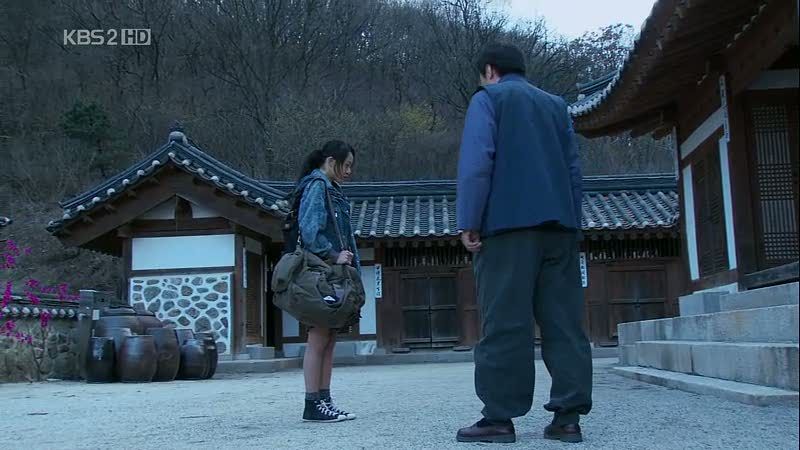
In the privacy of her own room, Eun-jo lets her unhappiness show as she recalls Hyo-sun’s declaration that she’s dating Ki-hoon. Opening her armoire, she sees at the bottom a duffel bag, which spins her back into a flashback to the last time she’d used it.
It was soon after Ki-hoon’s departure that she decided to run away. In stark contrast to the last time she tried to run — dashing away frantically, chased by Ki-hoon — this time her steps are heavy and her eyes tear-filled, like she doesn’t really want to run but has little choice. She sends a lingering look at the pavilion where she had heard Ki-hoon singing.
Dae-sung comes up to her and says that he had the feeling she’d try to leave after Ki-hoon had gone; he understands that his home wasn’t enough of a consolation to keep her here: “When he left, I worried most about you.”
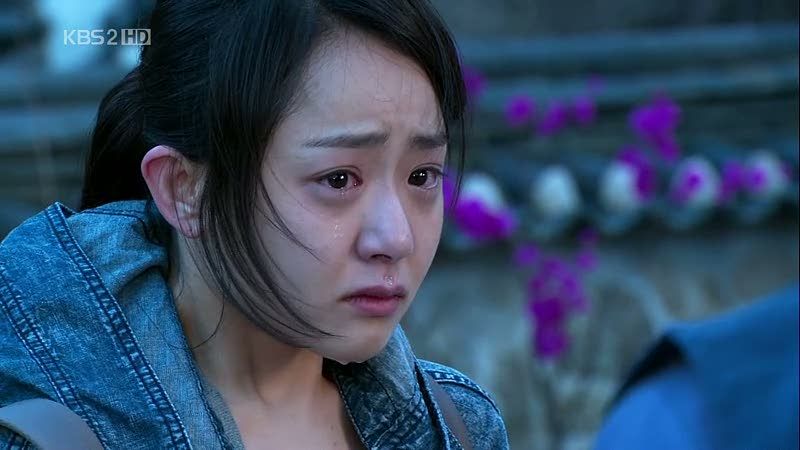
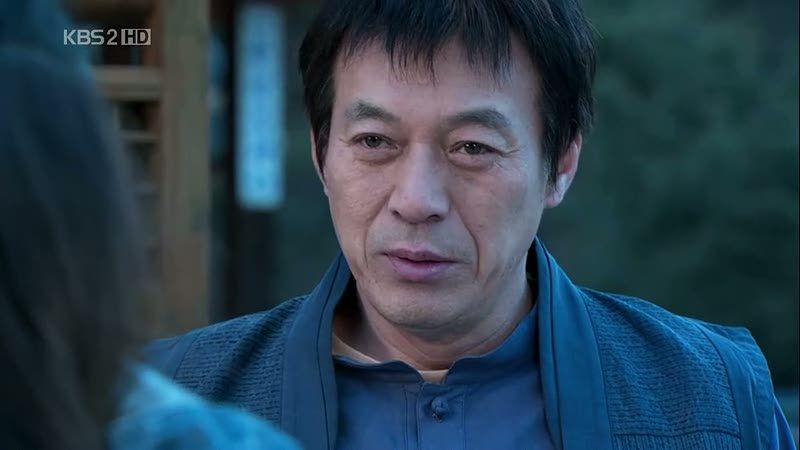
Eun-jo asks him in a shaking voice to let her go, and she looks like such a young child in this moment that it breaks your heart just a little.
Gently, Dae-sung shakes his head no. She counters that she’ll find a way to go anyway, and he’s well aware that she may try. So he promises that he will let her go when the day comes that he won’t feel the need to worry over her departure. He’s a man of his word and asks her to believe him, and takes the bag from her.
Every episode has had at least one standout scene, and this is my favorite in this episode. Eun-jo looks so lost even as she’s trying to be defiant, and Moon Geun-young plays her tears with so much complexity of emotion. There’s fear there, and sadness, and abandonment — but there’s also a kernel of hope, like she’s just dying for somebody to stop her and despairing that nobody loves her enough to do that. It’s also a striking similarity to Ki-hoon’s departure when he’d been hoping that Eun-jo would stop him from going. And just as she was the only one who could hold him back, Dae-sung is the only one who can hold her back now.

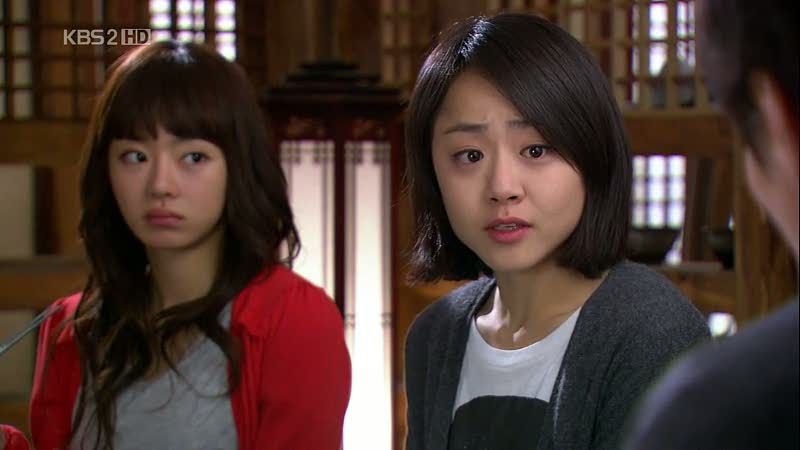
Back to the future. The family lines are even more clearly drawn at dinnertime, at which Eun-jo talks business with Dae-sung while Hyo-sun pouts in the background. Eun-jo wants to hire someone to handle the company’s marketing, while Dae-sung is hesitant because he doesn’t harbor the ambition to grow that big.
Eun-jo challenges him, “Then what is there for me to do?” Is he just going to waste her and her microbio education? What’s the point of her working there if he’s not going to cultivate the company’s growth?
Eun-jo’s strong words are not quite disrespectful but they’re certainly pushing the boundary. Rather than being affronted, Dae-sung chuckles. She’s got a point.
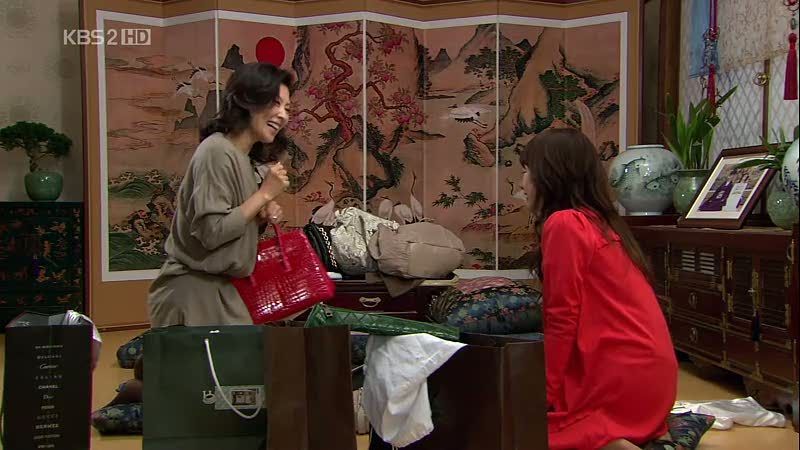
Just as father and stepdaughter have developed their relationship, Hyo-sun and Kang-sook have also formed a unit, bound together with their love of pretty material goods. Kang-sook wants to see all of Hyo-sun’s cute purchases — the very ones that Dad is so mad about — and delights over the bag Hyo-sun bought her. But she also turns her eye to the massive stack that Hyo-sun has bought herself, and claims another by saying it’s too old for her.
Mom starts to try all the handbags on, and we can be assured she’ll come out of this with a lot more than Hyo-sun intended to give her. But there’s a hint of sadness here, too, when we see that Hyo-sun IS very aware of her stepmother’s manipulation but is eager to give her what she wants, rather than incur her displeasure. She still feels the need to buy her love; how interesting that the pampered princess feels just as bereft of affection as the neglected child. If only these sisters could bring out the best in each other rather than the worst… but I suppose we’d have no drama then.
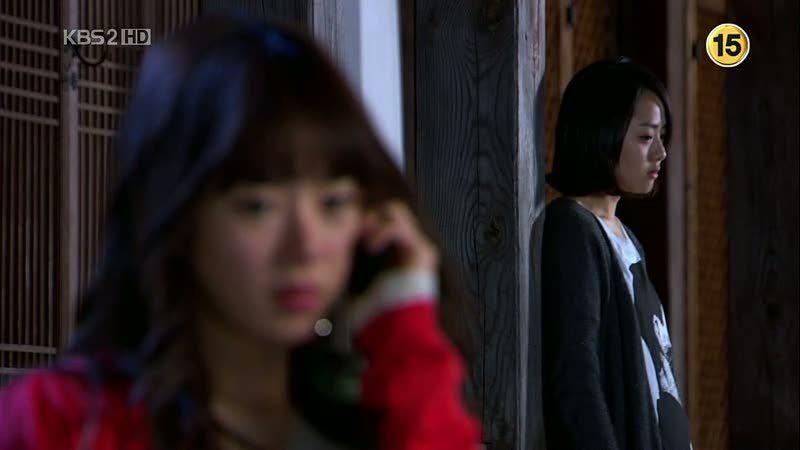
I know we’re all dying to get to the burning question: What’s the deal with Ki-hoon and Hyo-sun??? And it’s becoming slowly evident — to the viewer, but not to Eun-jo — that perhaps it was all a lie after all, one Hyo-sun couldn’t resist.
That evening, Eun-jo finds herself distracted as she studies, and overhears Hyo-sun talking on the phone. She’s being pestered by one of her discarded suitors and dashes off to talk to him at the gate, facing him with annoyance. The poor nerdy-looking fellow is smitten with Hyo-sun and hurt by her coolness toward him as she sends him off.
He calls immediately to tell Hyo-sun that his car has a flat tire, so Hyo-sun directs him to the mechanic’s shop at the train station. She calls him “oppa” — and to Eun-jo’s ears, this is confirmation that she is in fact dating Ki-hoon.


Now Eun-jo rushes out on her bicycle, thinking of Ki-hoon all the way to the train station. But when she arrives, there’s nobody there, and she thinks she has missed him for the second time. She returns home in disappointment.
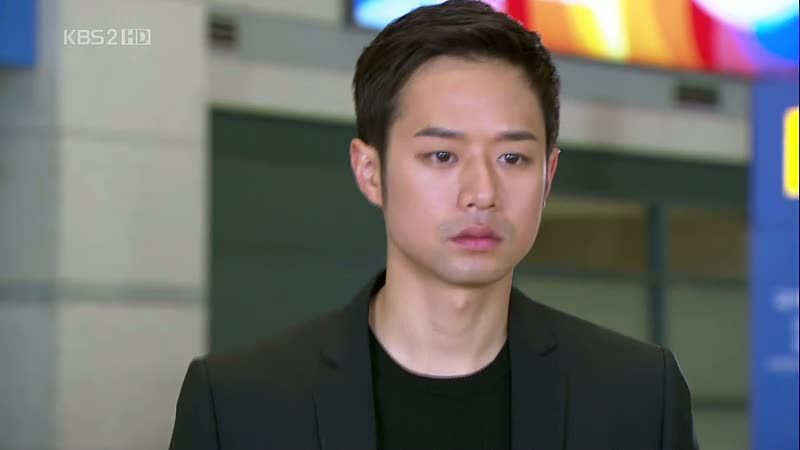
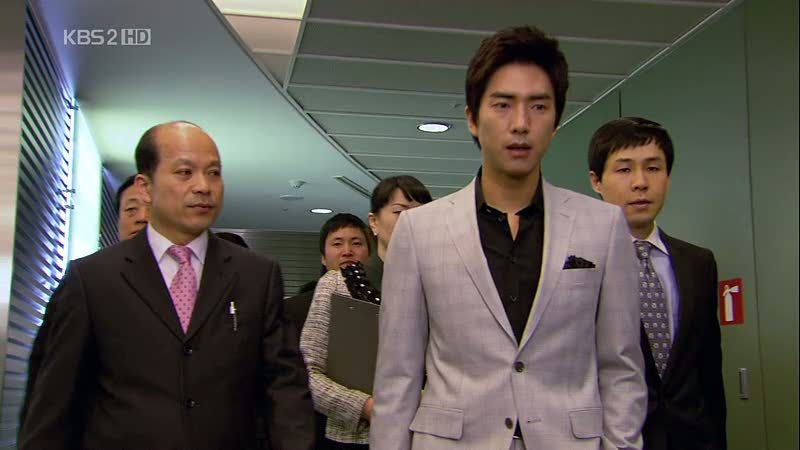
So what has actually happened with Ki-hoon? Finally we see him fly in to Korea from the States, and he is taken to see his father. The mood is cold between the two men, and Ki-hoon faces him with cool reserve.
President Hong has called Ki-hoon here for the first time in eight years, and fills him in on the company’s status. Eldest brother Ki-jung is competently running things now — he runs a tight ship and is on top of every detail. He knows the smallest details of his employees, not out of personal concern but to ensure that he has everyone on his side. He has stolen everyone to his side, leaving President Hong bereft of support.

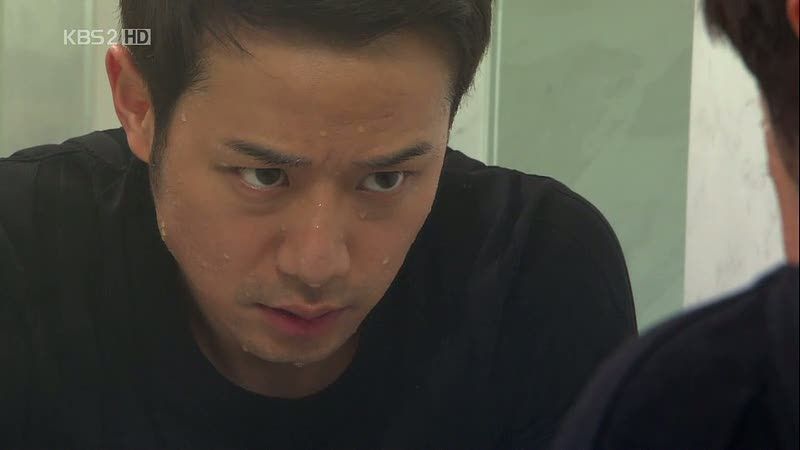
Ki-hoon delivers a document to his father, but President Hong puts that aside to address a more important matter. We don’t hear what it is, but it must be a doozy, because Ki-hoon reacts with intense emotion — anger, frustration, loathing.
Alone in his hotel room, Ki-hoon sees a magazine feature of Dae-sung’s company, which also features Eun-jo as one of the directors. The article is about how Dae-sung’s company has been rising sharply in sales in the past year, encroaching upon Hong Ju (Ki-hoon’s family biz), which has ruled the market for a long time.
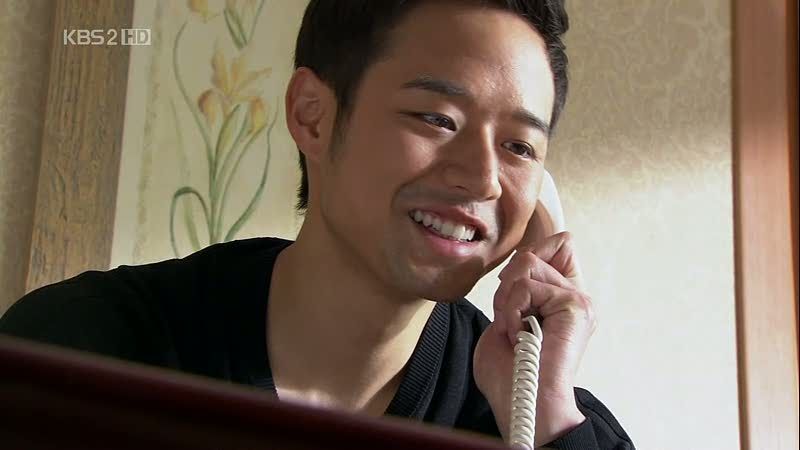
Ki-hoon reaches to touch the phone, wanting to call, but pulls back. Then reaches again. Pulls back again. And when he does call, his smile finally comes out as he greets Dae-sung.
(The lack of music in these scenes is a fantastic choice to add to the spareness of the scenes. It gives Ki-hoon a starkness and a sharpness that he didn’t have before.)
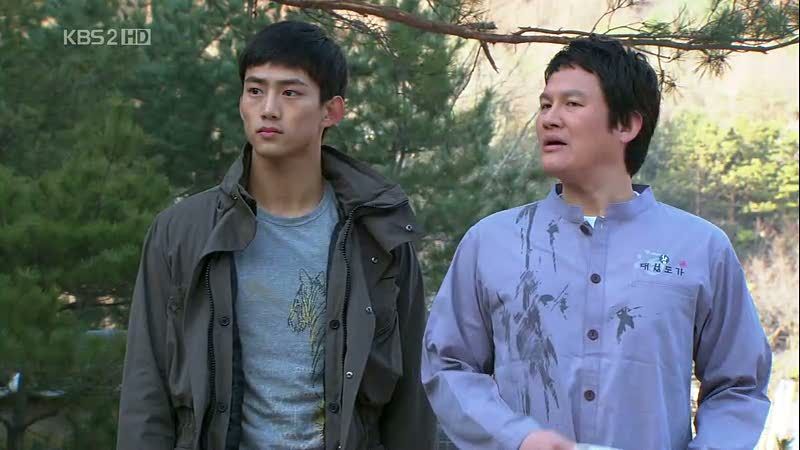
Now for the entrance of grown-up Jung-woo, who comes to Dae-sung’s winery (still carrying his old baseball bat in his bag). Finding Hyo-sun’s uncle, he salutes him in the military style, which indicates that they served in a similar unit.
(Serving in the army builds something of an alumni network, and one can sometimes use those connections in real life in the way that one makes use of college alumni networks. As the age difference between the uncle and Jung-woo is obviously too great for them have served together, I presume Jung-woo is utilizing this connection to get a job working at the company.)
Taecyeon doesn’t have too much to do in this episode, so I can’t make any definitive statements on his acting debut just yet. We’ll get to that when he has shown more range. But my initial impression is positive, and I found him downright adorable in one part where he gives his enthusiastic military-style greetings. I think his thick regional accent may slip in and out from time to time, but overall he manages the dialect competently. (It’s a pretty tough dialect to master.)
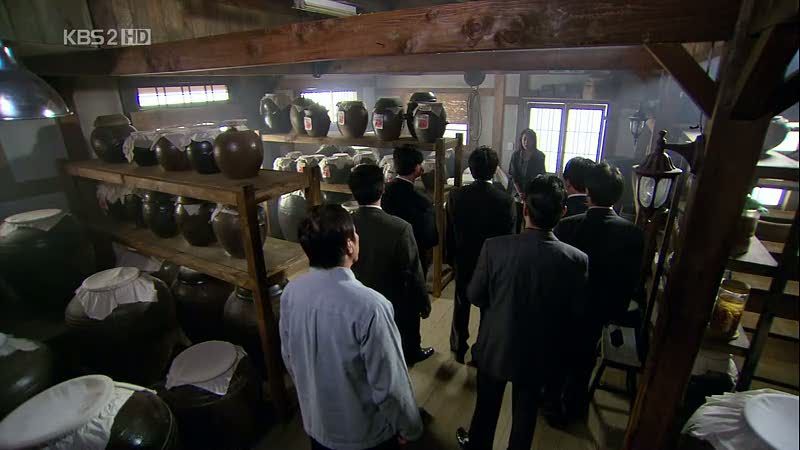

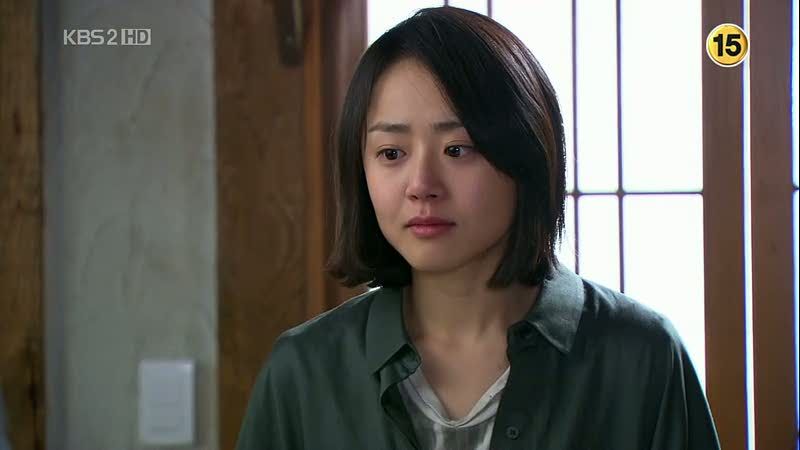
Jung-woo catches a glimpse of Eun-jo and is immediately captivated, gazing after her with yearning. He follows the group of businessmen to whom she is giving a tour, joining them in the makgulli cellar.
Eun-jo asks the men for a moment of silence to hear the sound of the wine fermenting. For a moment, Eun-jo gets lost in her own memory, listening to the bubbles. Dae-sung notices and takes over the tour until Eun-jo recovers.
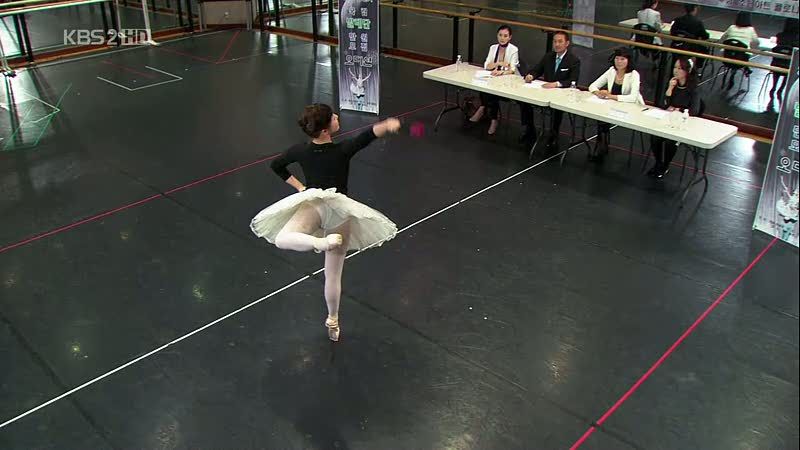
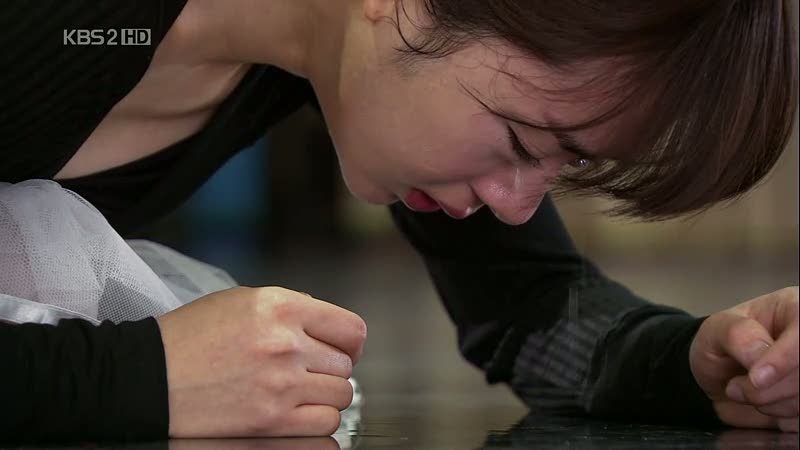
Hyo-sun performs at a ballet audition, where she falls on a turn. She’s immediately cut, but she ignores the judge’s dismissal and insists on starting over, only to stumble again.
Maybe on any other day she would be able to shrug this off, but today puts proof to Eun-jo’s words that she lives an aimless, goal-less life. Breaking down, Hyo-sun cries, “Then I can plan from here on!” This outburst has the judges eyeing her in disdain, murmuring that she lacks even the basic skills.
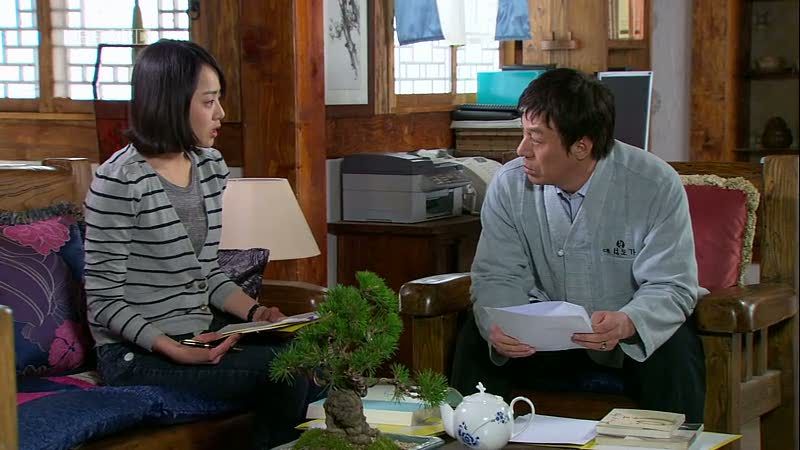
Dae-sung has a candidate for the marketing position, but Eun-jo has plans to interview two of her own candidates tomorrow. Dae-sung adds his candidate to the interview list, though he doesn’t give the name (one guess who!).
He feels that Eun-jo is pushing herself too hard; he didn’t mean for her to give up her youth to help him. Surprisingly, she answers that she’s not here just to help him: “I’m waiting.” (One guess who for!)
Eun-jo reminds Dae-sung of his promise to let her go when the time was right, and informs him that once she has succeeded in her goals here, she will leave. Upon that event, she will consider that her debt has been repaid. And despite the fact that he has grown used to her clipped way of speaking, he’s stunned to hear her call this a debt, hurt at this coldness.
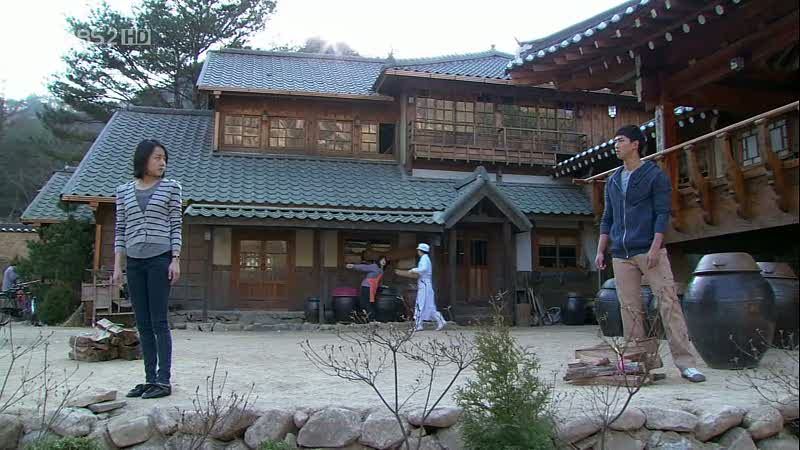
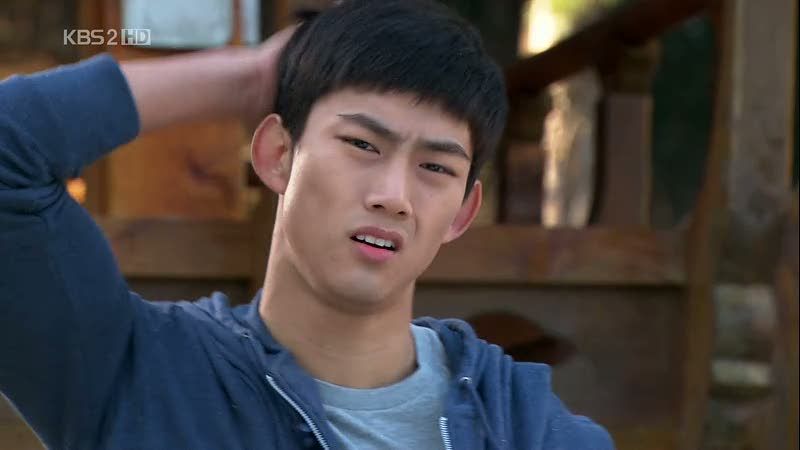
Jung-woo has begun working as a menial laborer, and runs into Eun-jo in the courtyard. She pays him no heed, but he grabs this chance and asks, “Don’t you know me?”
She looks at him indifferently, not recognizing such a drastically transformed Jung-woo, and brushes him off. Frustrated, he follows her out to say, “I’m Jung-woo!” The name doesn’t ring an immediate bell, so she tells him he has mistaken her for someone else. Since he was hired through Hyo-sun’s uncle, she assumes he’s here looking for Hyo-sun — yet another admirer, perhaps.
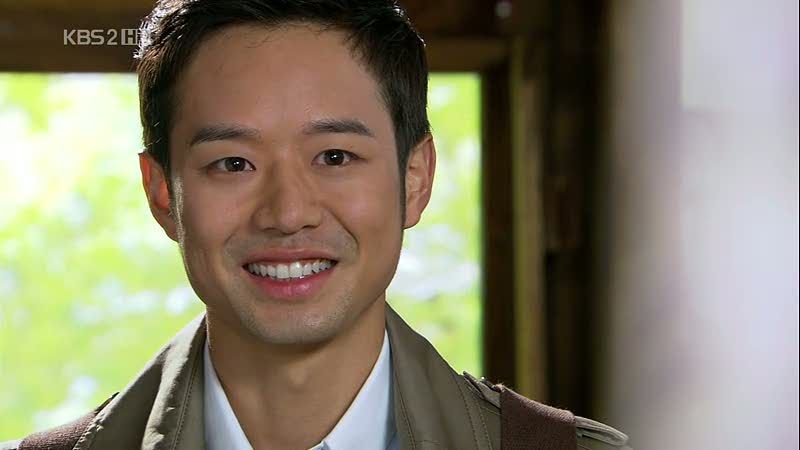
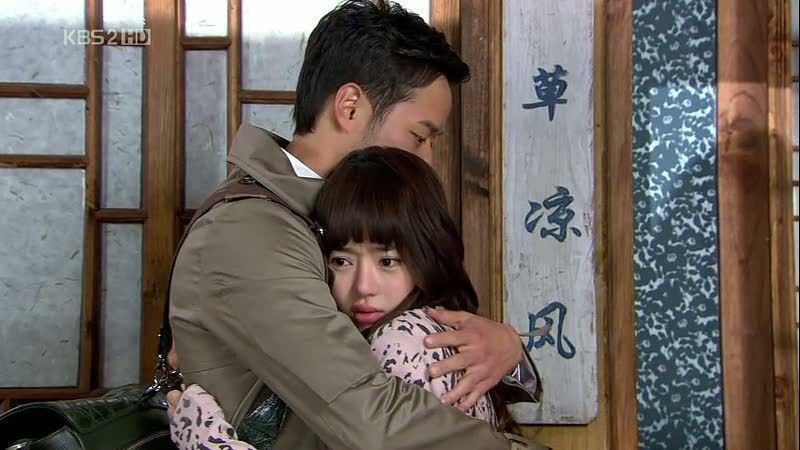
And then, Ki-hoon makes his appearance for the first time in eight years, and Hyo-sun is the first to see him. (Curses!) Shocked, she greets him emotionally, running to hug him tightly, proving (just in case there was still a doubt) that she has not, in fact, kept in touch over the years. (It’s the fact that she knew nothing of Ki-hoon that gave her the nerve to lie to Eun-jo, I believe, because it was unlikely that Eun-jo would know enough to contradict her lie.)
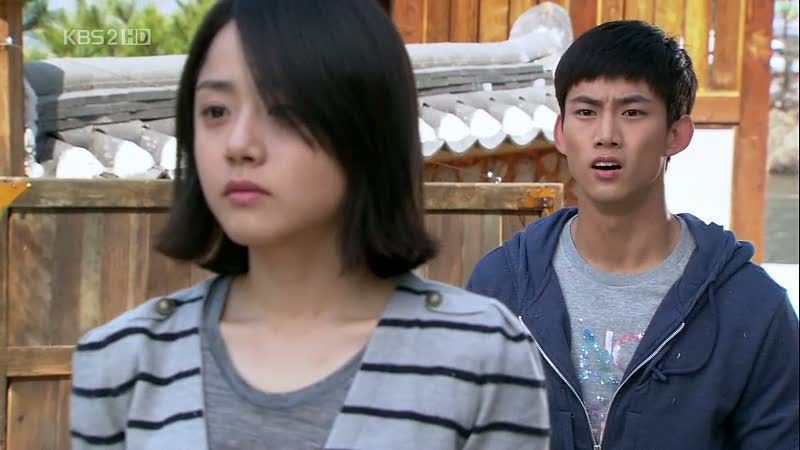
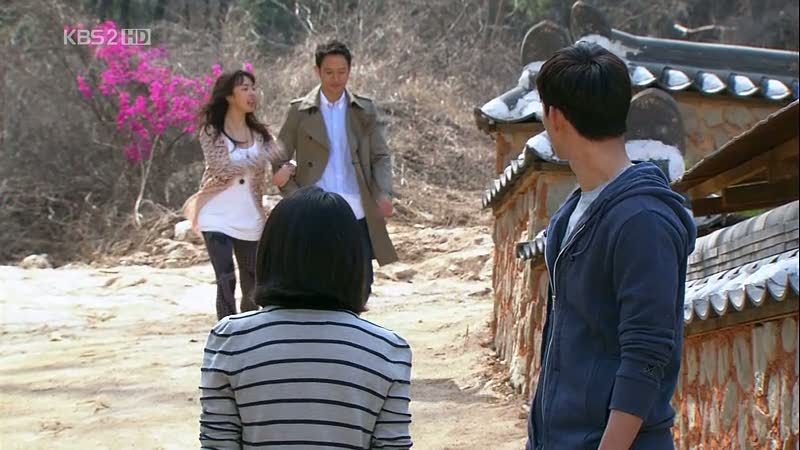
Eun-jo dismisses Jung-woo, so he identifies himself more specifically — he’s the Jung-woo who used to live with Jang ajusshi.
But alas, she has not heard one word of his explanation, because just as he speaks, she glimpses a horrible sight: Ki-hoon arriving arm in arm with Hyo-sun. As she already believes they are dating, this is a particularly harsh blow, and she puts up that wall again to keep from betraying how painful this moment is.
As ever, Ki-hoon and Eun-jo only have eyes for each other, while the others look on curiously. Eun-jo’s non-reaction is a disappointment for Ki-hoon, who tests the waters by saying, “A face I recognize. You’re Hyo-sun’s sister, aren’t you? Do you remember me?”
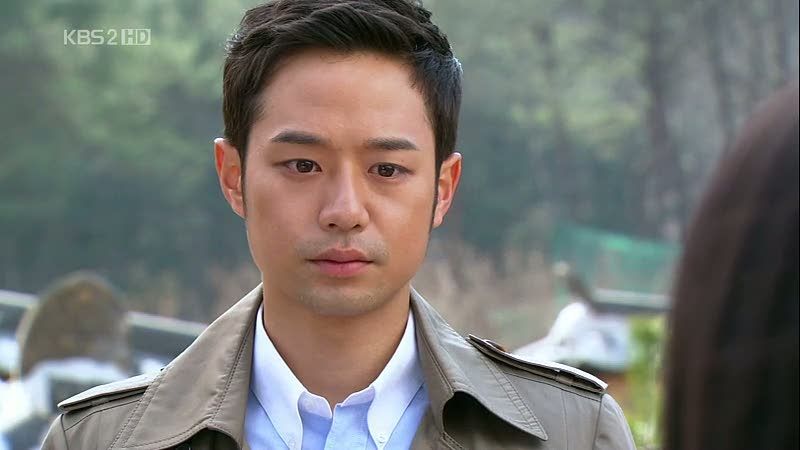
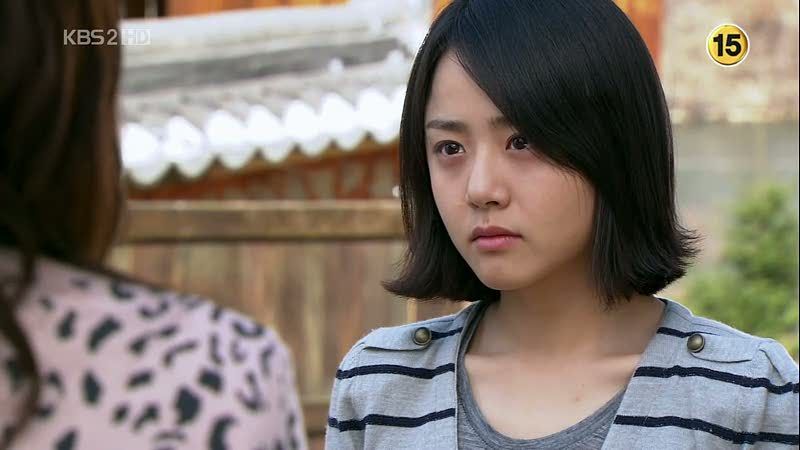
Eun-jo keeps looking at Ki-hoon with an accusatory stare, as if to ask how he could do this. Not knowing the source of her anger, he looks uneasily back at her while Hyo-sun asks curiously how she doesn’t remember Ki-hoon oppa.
Finally, after a long moment, Eun-jo says, “Hello,” as though speaking to a stranger she has just met. And Ki-hoon, bitterly disappointed at her reception, returns the cool greeting in a daze. Oh, squeeze the life out of my heart why don’t you!
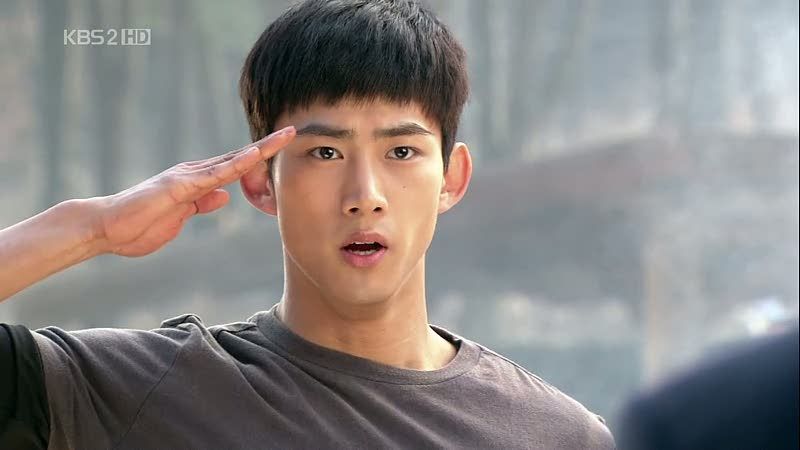
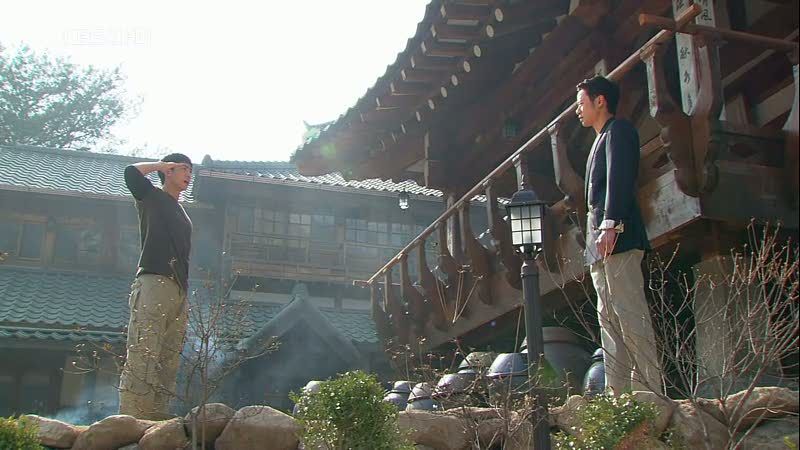
The next day, Jung-woo sees Ki-hoon hanging around outside. Recognizing him from the day before (and having clocked the tension between Ki-hoon and Eun-jo), Jung-woo speaks informally and a little rudely to Ki-hoon as he asks where he completed his army service. (His fixation on the military suggests to me that he has just gotten out of service himself, as the army is his first way of relating to other men.)
At first Jung-woo speaks as though challenging Ki-hoon, but as soon as he hears that Ki-hoon served in the Marines (considered particularly tough), he swallows that attitude and immediately salutes to his senior, as he was also in the Marine corps. I believe the Marines are particularly tight and have their own, close-knit sense of camaraderie.
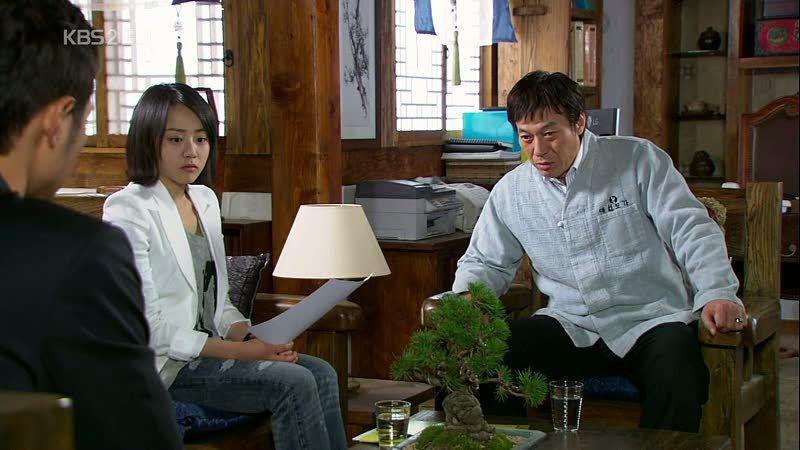
As Eun-jo’s two interviewees are no-shows (one got another job offer), it’s time for the third, and boy is this an awkward moment. Eun-jo treats Ki-hoon like a stranger as she goes through the interview questions.
But the underlying meaning isn’t lost on Ki-hoon when she asks why he’d want to work here in a dinky rural setting — is he just going to take off when something better comes along?
He answers, also with extra meaning, “I’ll work hard, and you won’t want to let me go. If it seems like I may leave, you’ll treat me even better. I’ve lived here, and I like it here. Having lived here is my biggest asset.”
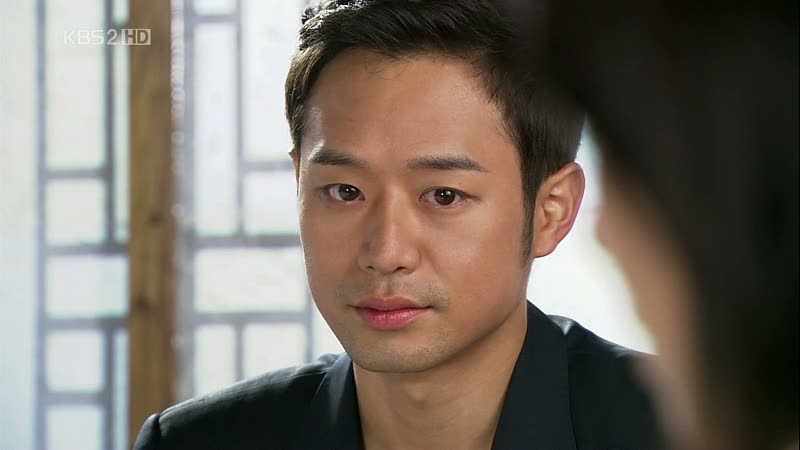

She can’t resist asking a few questions to sate her curiosity, although of course she frames it as interview questions: Did he leave for the States right after his army discharge? (Yes.) Since he lived there for five and a half years, did it take him that long to earn his degree? (He worked at a marketing firm in New York after school.) All this she asks while keeping her gaze averted; he answers looking directly at her.
And then, she finally looks up at him to ask a question that has extra importance: Did he ever come back during that time? She holds her breath. He answers that he came back every vacation.
At this, Dae-sung speaks up to scold him for never calling. Ki-hoon apologizes — he was busy every time he was here. No doubt Eun-jo hears that as “I was too busy for you” — and she takes a shaky breath.
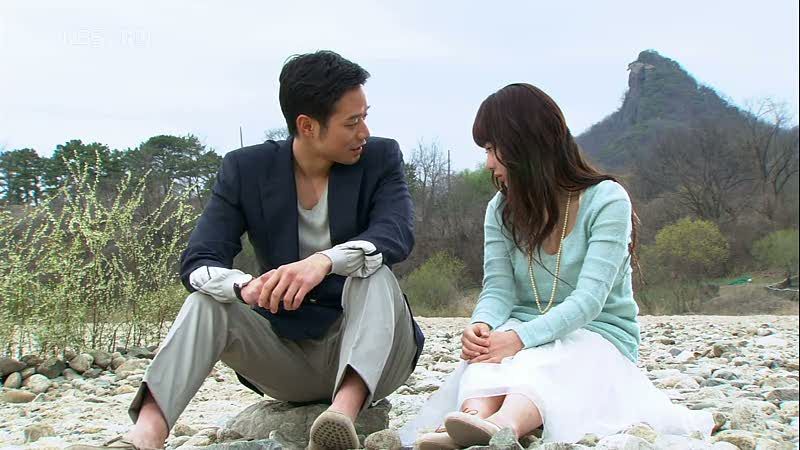
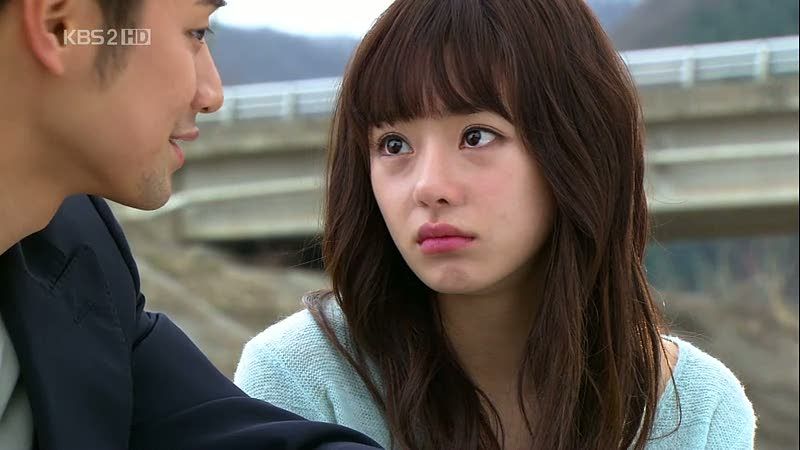
Hyo-sun receives the results of her audition — another failure — and hears Eun-jo’s words ringing in her ear. Ki-hoon finds her here by the water and guesses that she’s upset to have been cut again. He comforts her, saying that she’ll pass one day — and if not, well, it’s not so horrible when the world is full of fun and interesting things.
Hyo-sun asks where he’s been. Verging on tears, she sighs that she has no dream and no goals. “Is someone like me able to live an interesting life?” (Implication: Do I deserve it?) She asks him to tell her the moon is a square, like he used to.
Ki-hoon tells her that she can gain those things gradually, as she goes through life. At his kind, gentle words, Hyo-sun lays her head on his shoulder and says, “You’re mine, oppa.” Tearily, she adds, “Why did you come now? Jerk.”
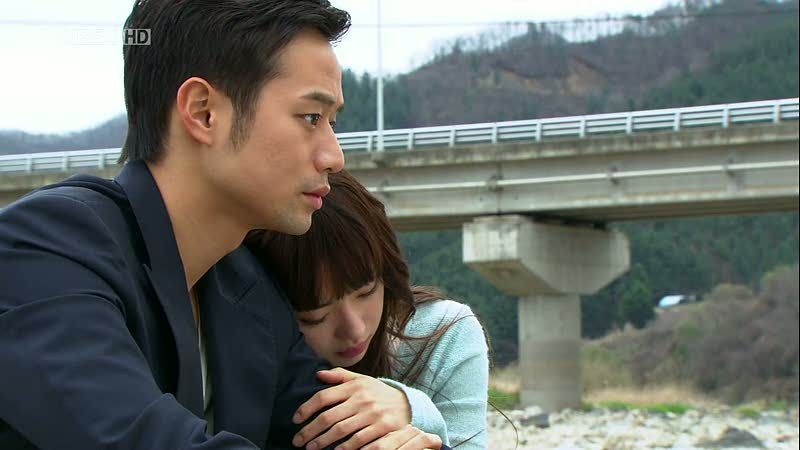
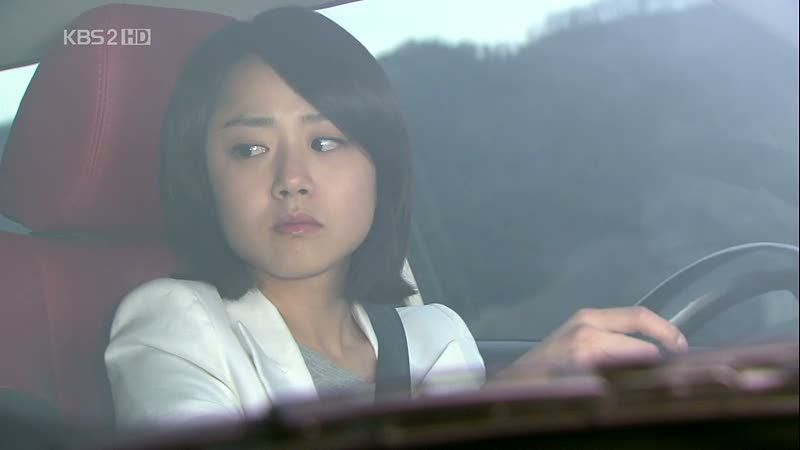
They sit there by the water — and as timing would have it (per our Rule of Melodramas), this is the tableau seen by Eun-jo, who drives by at just this moment. Her face hardens.
As a result, Eun-jo is particularly aloof when she, Dae-sung, and Ki-hoon meet to discuss marketing strategies. Ki-hoon presents his idea for TV advertising. Eun-jo asks for detailed calculations on the cost of television ads, then excuses herself for a meeting.
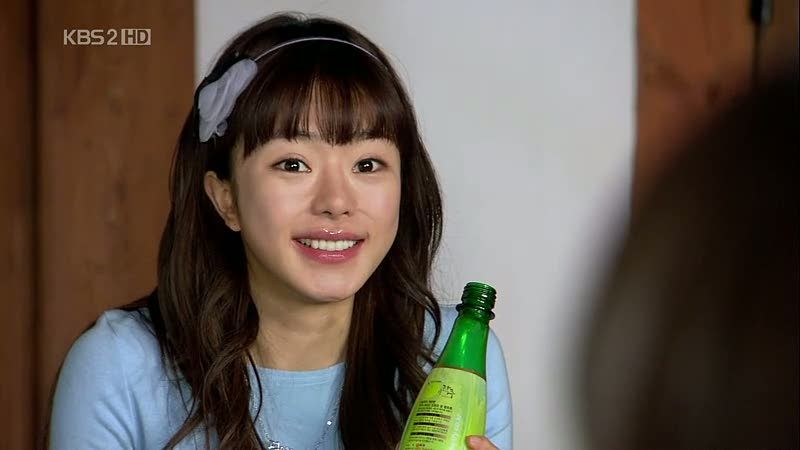
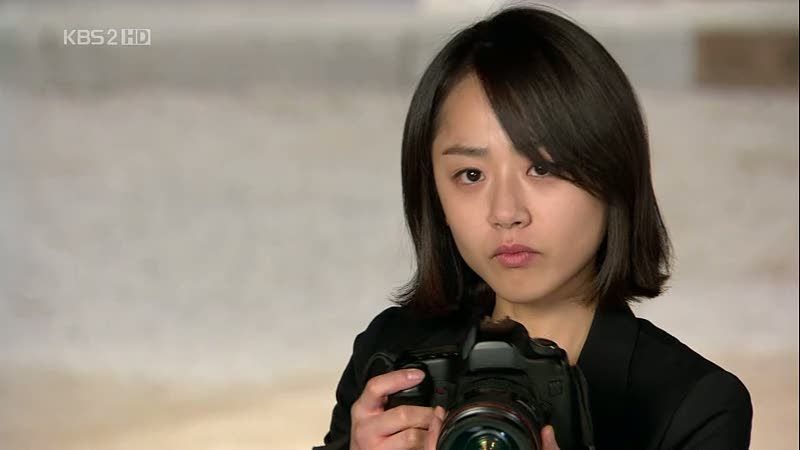
Trying her own idea out, Eun-jo photographs a mock ad with Hyo-sun as her model. She gets her shot, and though she says it with no pleasure, she has to give her props to Hyo-sun: “You’re quite pretty.”
Hyo-sun is dumbstruck, then asks her sister to repeat her words. Eun-jo points out that this is hardly the first time she’s heard that she’s pretty.
Even so, Hyo-sun smiles at this unexpected validation. I’ve got to believe that as much as Hyo-sun thrives off of demanding people’s attentions and basking in pretty words, she understands the difference between flattery and sincerity, and this means a lot to her.
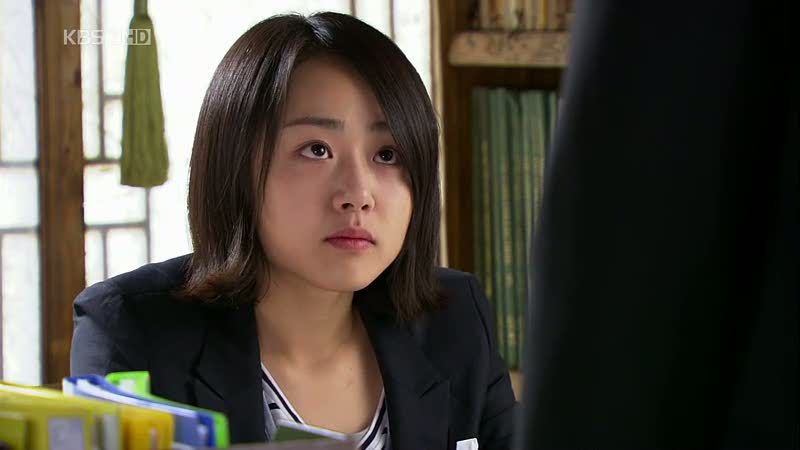

When Ki-hoon presents Eun-jo with a breakdown of advertising fees, she rejects the numbers, going down the list to strike things they don’t need. A model, for example (she’ll probably use Hyo-sun), nor a outside ad agency. She instructs him to redo the numbers with the barebones costs.
Ki-hoon can’t understand why Eun-jo is treating him so coldly, and asks, “Do you have anything else to say?” She betrays nothing, so he leaves.
That evening, Dae-sung decrees that he will be putting Hyo-sun to work, which is an idea that pleases neither sister. He will not be swayed by his wife this time and instructs Eun-jo to find some work for her to do.
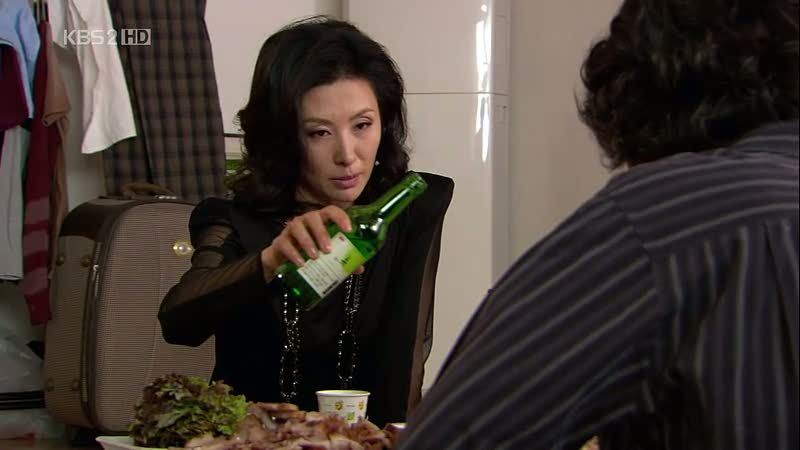
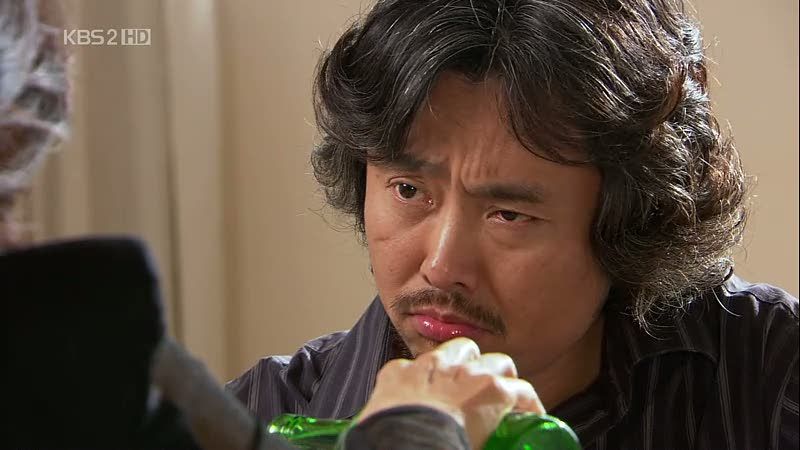
Interestingly, Kang-sook is still making regular visits with Jang, who is still in love with her and suggests that they get back together. She puts him back in his place immediately, saying that she’s not meeting him because she loves him, but because she needs an outlet for expressing herself once a month — otherwise, she’d die of frustration from keeping up the perfect wife facade. With Jang, she can be as vulgar and drunken as she pleases.
She still has to be wary of Dae-sung at home, as she comes home late that night and possibly smelling of liquor. Thankfully for her, he is preoccupied with graver worries, as they received a call from Hyo-sun’s friend saying that she is passed out drunk. Eun-jo and Ki-joon have gone to pick her up.
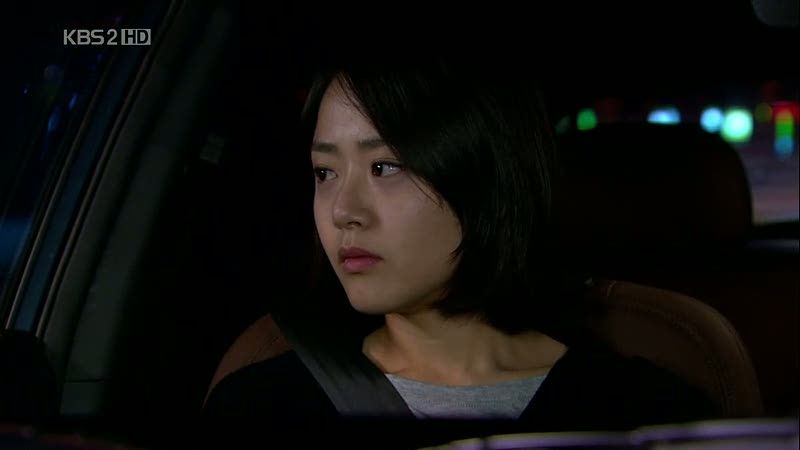

On the drive, Ki-hoon tries to make conversation, and asks if Eun-jo remembers anything. She feigns sleep to avoid talking to him, and they drive on in silence.
On their return, Ki-hoon carries Hyo-sun to her room, and after he leaves, Eun-jo tucks her sister into bed. She may not be willing to show affection to her sister in the light of day, but there are little moments like this (and the “you’re pretty” exchange) that show that their relationship is not all hate and jealousy. I appreciate that.

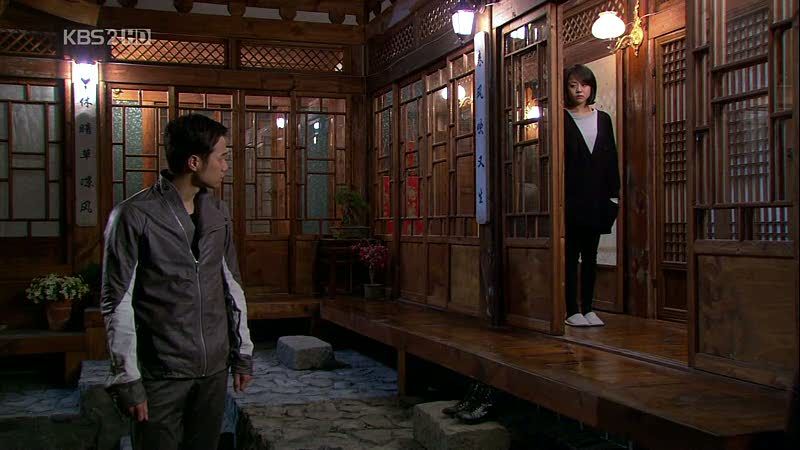
As she leaves the room, she finds Ki-hoon in the courtyard, standing still like he was so lost in thought that he just forgot to keep walking. He looks up at her and they meet eyes, but she breaks the stare.
Looking intently at her, Ki-hoon asks again, “Do you really have nothing to say to me?”
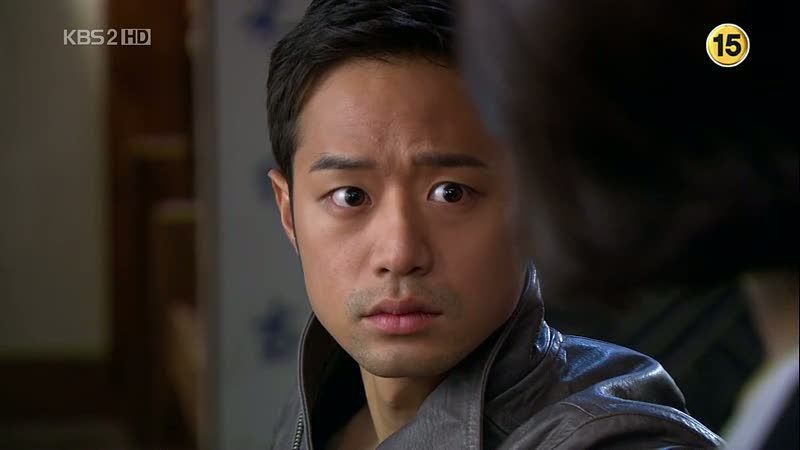
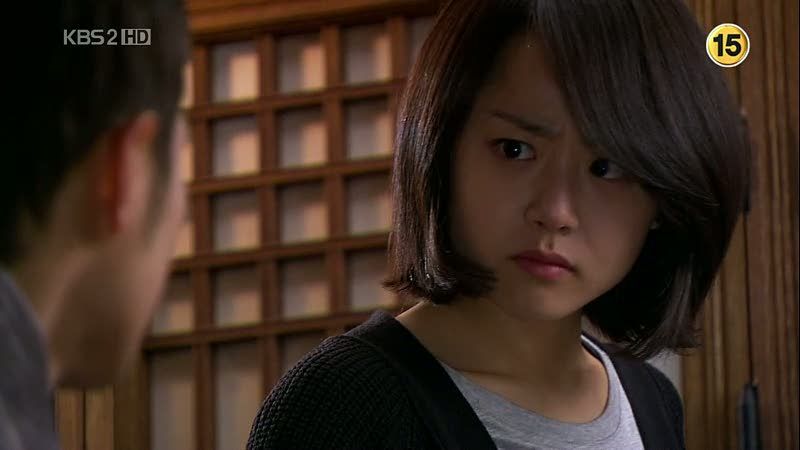
Till now he has asked this question in polite (i.e., stranger-to-stranger) speech, but now he takes the familiar speech, like he’s not going to just accept her distance this time.
He grabs her wrist and she glares. He pulls her out to the front gates, where he confronts her openly, all pretense dropped now.

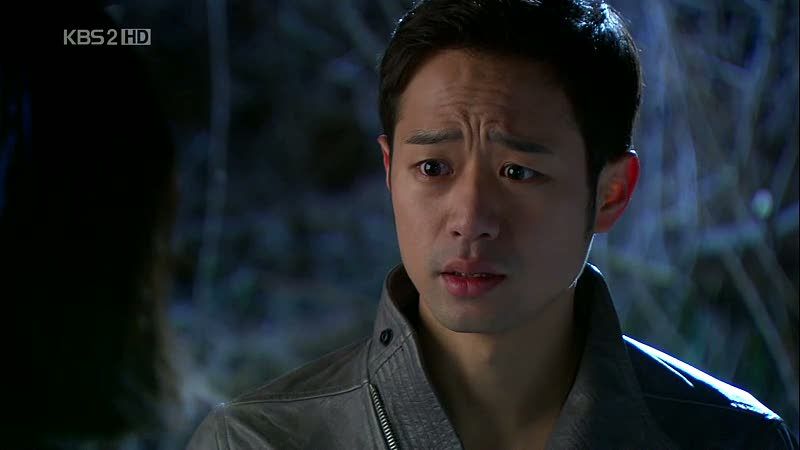
Ki-hoon: “Do you really have nothing to say to me, you awful girl?”She looks straight at him now, her sneer back:
Eun-jo: “I have no idea what you’re talking about.”
Ki-hoon: “Awful girl. You’re pretending not to know me?”
Eun-jo: “Do I have to act like I do?”Suddenly he understands, and looks stricken as he insists, “That’s not it.” She doesn’t believe him, so he presses on, “Hyo-sun isn’t the one. She’s not. That’s not true.”
Ki-hoon: “Do you know how much I—”
Eun-jo: “Shut your mouth.”
Ki-hoon: “What?”
Eun-jo: “Crazy bastard.”
Ki-hoon: “What?”
Eun-jo: “What’s Hyo-sun, and what am I? I didn’t know this, but you’re a son of a bitch.”
Eun-jo challenges, “Does Hyo-sun also think it’s not true?” He answers, “I’m telling you it’s not true!”
Not moved at all, she retorts, “And who are you? You’re fired. Don’t step one foot inside this house.”
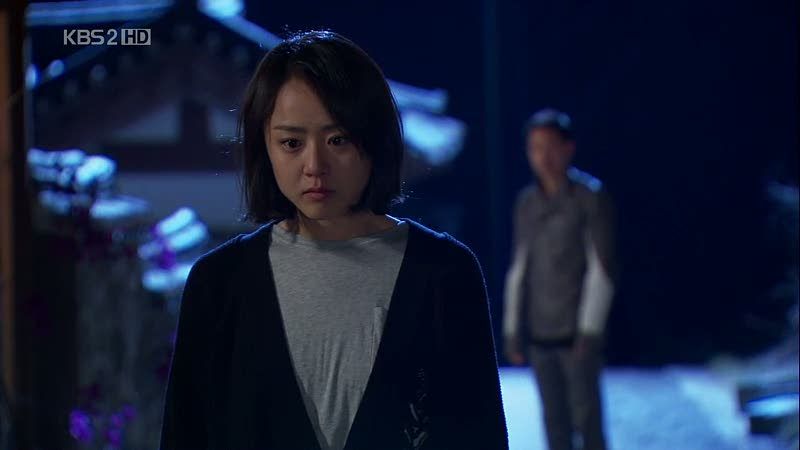
And she walks away, ignoring him as he calls after her, “Hey, hey!”
But then he calls out “Eun-jo ya,” stopping her in her tracks, against her will. And again, “Eun-jo ya.” Her eyes brim with tears and she stands frozen. He keeps calling out after her.
“Eun-jo ya.”
“Eun-jo ya.”
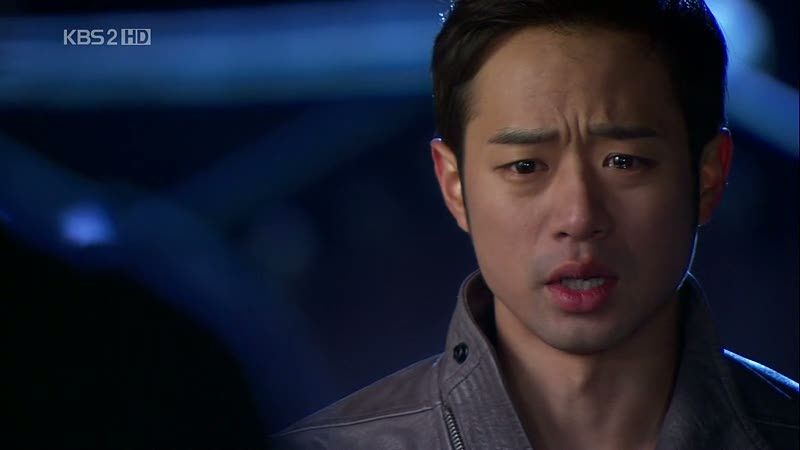
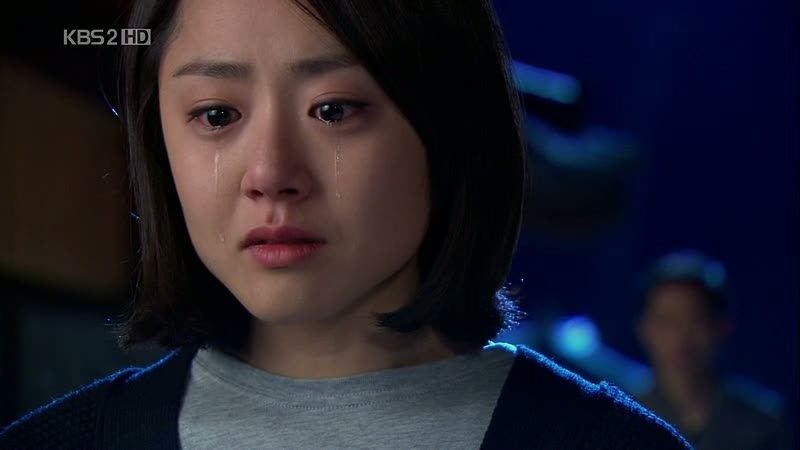
COMMENTS
First off, a few leftover threads from the time-skip period:
I love that Ki-hoon’s parting letter was in Spanish, which hammers home the point that Hyo-sun can interfere, she can thwart the natural order of things for eight whole years, and she can try to claim Ki-hoon — but she still can’t understand the letter. She’ll never comprehend the stuff at the core of their connection, because twoo wuv transcends, or some such.
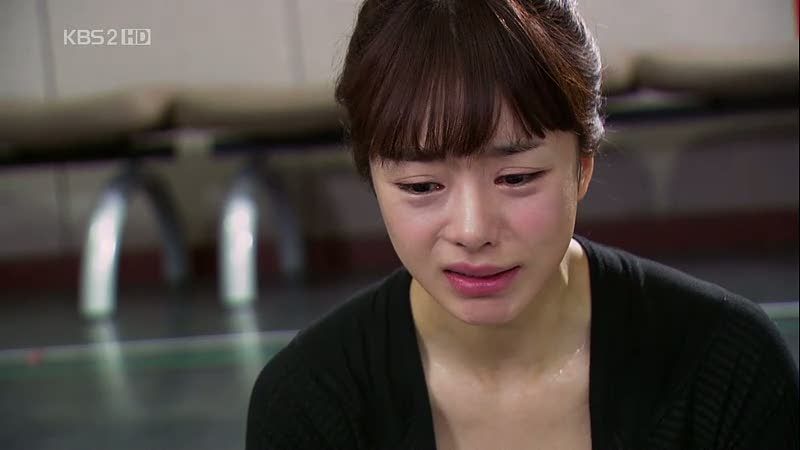
I find Hyo-sun infinitely more interesting as a character in these grown-up years, because she’s not really Cinderella anymore, is she? I had always considered the traditional Cinderella to be the good girl beset with unjust and cruel treatment by outside forces — namely, the stepmother and evil stepsisters. That’s generally how she is framed in the straightforward interpretations of the fairy tale. She’s a worthy heroine who is made to suffer indignity.
But Hyo-sun makes me ponder the situation from a different angle — is the very experience of triumphing over unjust treatment what makes Cinderella worthy? Is a Cinderella without adversity, who is spoiled and indulged of her every whim, just as likely to end up a spoiled brat? We saw the good nature in young Hyo-sun, although the potential for her to be a spiteful person was always there. She didn’t rise above her challenges (bad Cinderella!) and instead went the other way.
So is Cinderella an inherently good person who happens to overcome adversity, or is the suffering what shapes her into worthiness? I’m just asking for my own amusement, as this gets us into Lockean vs. Rousseauian arguments of the nature of man and I’m sure there is no real answer.
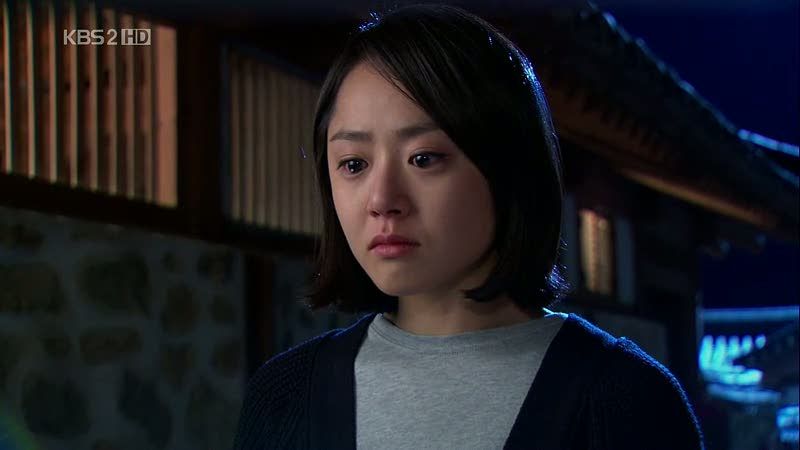
I also mourn the loss of Eun-jo’s glorious waterfall of hair, but on a thematic level it makes sense. Eun-jo’s hair is a metaphor in this reworked Cinderella tale, as it was the catalyst that made Ki-hoon see through her shell and to her true self. We had him pulling the pencil out of her hair accidentally — stripping away her facade? — and replacing it with the glass slipper equivalent, the glass hairpin. That trinket was lost in the place where they lost communication for the last time, as she sobbed on the beach a few feet from the dropped hairpin. So in the intervening years she has cut her hair, just as they have disrupted their rapport.

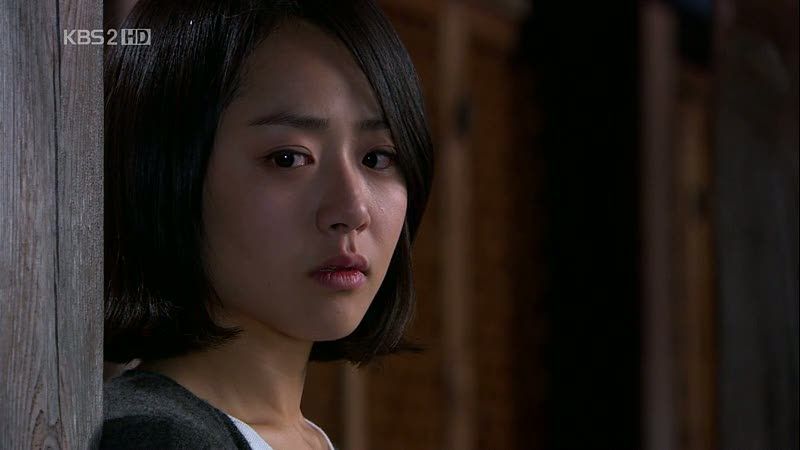
No comments:
Post a Comment